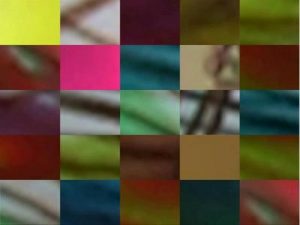
Patrizio Travagli, Doppelgänger_25stills, 2012
PATRIZIO TRAVAGLI
P r o j e c t
DOPPELGÄNGER
opening November 8, 2012 6 – 8pm
duration December 29, 2012
the exhibition is part of
Eyes On
Monat der Fotografie Wien
October 30 – November 30, 2012
:::
The work of Florentine light and media artist Patrizio Travagli (*1972) examines objects and phenomena that are generally considered true, objective or natural. With the help of his philosophical and scientific skill set, he explores artistic “thought experiments“, as he calls his conceptual as well as sensual projects.
For example, in his video „Doppelganger“ (first version 2007) Travagli uses his high-definition camera to capture seemingly unspectacular everyday items, such as boiling spaghetti, a ringing cell phone or a scribbled on piece of paper with a 500 x zoom. This way, any visual (or acoustic) identification of these objects becomes impossible. Instead, we perceive abstract sensations in terms of color and form, new unseen images of „reality“. Borders, edges and other significant elements become blurred, disappear, are set in motion, and thus, let time and space fluctuate without limits.
Basis for this technique is the philosophy that wishes to explore the question of the relationship between so-called objectivity and subjectivity – what is true or false, what is subjective or objective, what is reality and what are the resulting constructions. Are things „actually“ the way we perceive them – or is their occurrence – their being – conditional on their respective position or the perspective of the viewer and their own interpretation? According to Heisenberg’s uncertainty principle, moving elements are perceived differently from the outside than what was originally conceived. This may lead to the conclusion that „reality“ is nothing more than a momentary result of relations between things – a temporary occurrence that is always in transition, for which their is no beginning and no end but only constant permutation.
„Travagli explores questions that concern philosophy as well as physics. However, he does not illustrate these questions but reshapes them, transforms them into images, plays on images and impressive experiences. One of these experiences originates from Socrates’ famous words “I know that I know nothing“. For Socrates, this was the beginning of awareness and knowledge. Eve thought she had to eat an apple to achieve knowledge. Travagli offers us other options.“ (www.madonnafust.ch)
– Lucas Gehrmann (translation by white8 GALLERY)
